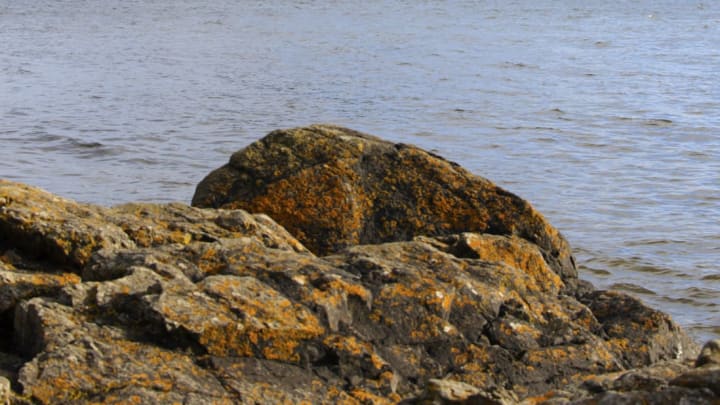The Person Who Solves the Mysterious Inscription on This French Rock Will Be Awarded $2200

In the village of Plougastel-Daoulas in the Finistere region of Brittany, France, there's a boulder that's only uncovered at low tide. When waters recede, a mysterious inscription carved into one side becomes visible, and though it's written in the Latin alphabet, no one has been able to decipher the message. The only scrutable components are the years 1786 and 1787—suggesting the carving is at least 230 years old. Now, The Local France reports that the village is offering €2000 (roughly $2242) to anyone who can break the code.
According to the mayor of Plougastel-Daoulas, the cipher was discovered on the town's shore a few years ago. The letters, most of which are capitalized, look like they might spell clear words from far away, but upon closer inspection they seem to be arranged in no apparent order. Lines contain nonsense like "DRE AR GRIO SE EVELOH AR VIRIONES BAOAVEL," and "R I OBBIIE: BRISBVILAR." There are also pictures of objects like sailboats etched into the stone.
If the message was written in the late 18th century as the dates indicate, various artillery batteries would have been stationed on Brittany's coast, including at Corbeau Fort which is beside the site. Beyond that, town authorities have no clues as to the inscription's origins. Some people think it's written in Basque or old Breton, but the town wants to hear what a professional code-breaker has to say.
Plougastel-Daoulas is calling on linguists, historians, academics, students, and hobbyists to examine the carving and determine its meaning. When all the translations are submitted, a jury will convene to select the most likely possibility and award the code-breaker the €2000.
In some cases, even years worth of studying ciphers isn't enough to crack a code. A code found in the pocket of a murder victim stumped the FBI for more than a decade, and the centuries-old Voynich Manuscript is still undeciphered.
[h/t The Local France]